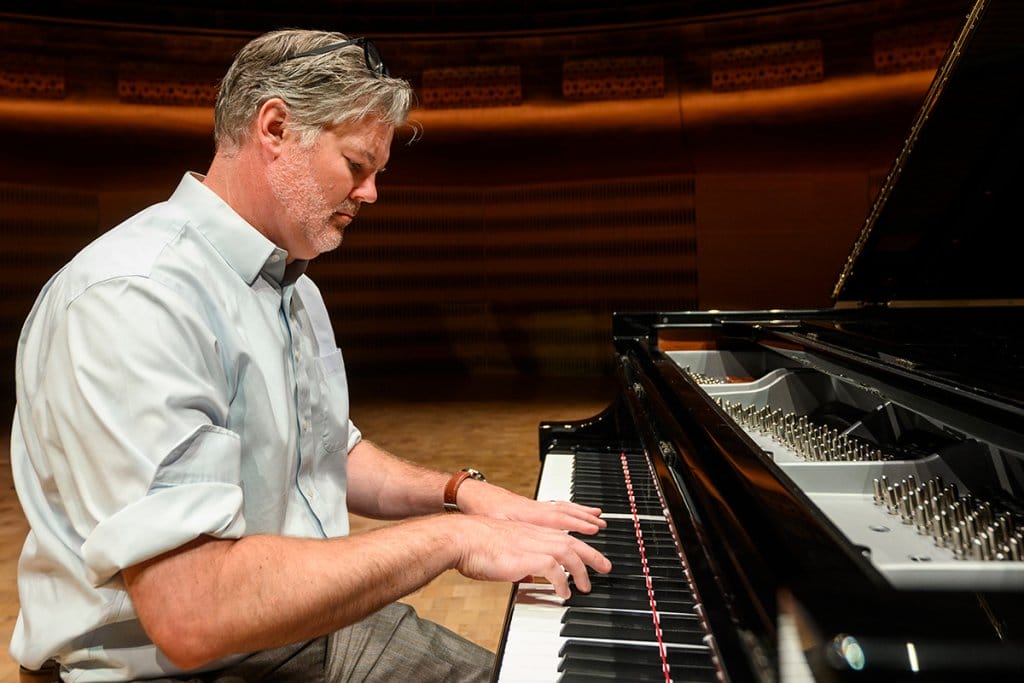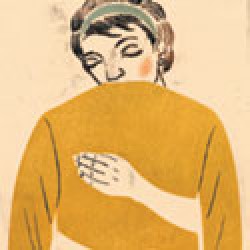How Music Makes Us Human
In the age of artificial intelligence, Mead Witter School of Music director Dan Cavanagh passionately defends individual creativity.

Cavanagh sees AI as “a tool that can allow humans more time to bring our creative, critical, and emotional contributions to music.” Althea Dotzour
Since becoming director of the Mead Witter School of Music in 2023, Dan Cavanagh has kept one eye on the past — maintaining the school’s excellence in classical music and jazz — and one eye on the future. He wants to equip students with the tools they’ll need to thrive in the modern world, including a grasp of rapidly changing technology. Artificial intelligence is transforming music, just as it’s transforming the rest of the world, and every last violist and tuba player needs to understand it. Cavanagh, an award-winning composer and pianist, acknowledges AI’s benefits while passionately defending people’s role in the musicmaking process: the “human-to-human connection.”
What’s the upside of artificial intelligence in music?
Generating and recording music is now possible for a wider range of people who don’t have musical training. Computers can generate interesting chord progressions or write a whole pop song and play it back to you. But there’s something you’ll never fully get without a human being involved. We want our students to understand how to use these tools without losing sight of the ultimate goal, which is making music to connect with other human beings.
Are you worried that AI might make human musicians obsolete?
I think AI is something we have to understand and adapt to. When calculators came in, it was a similar conversation: oh, this is going to ruin people’s ability to do math, the world is ending, and humans are going away. Well, that’s not what happened. As we all know now, a calculator is a tool. And I’m optimistic that generative AI in music will be a tool — in the mixing and mastering process of music production, for example. It’s a tool that can allow humans more time to bring our creative, critical, and emotional contributions to music.
Can you give me an example of the human-to-human connection in music?
A few months after I came to UW–Madison, I went to our Wind Ensemble concert, which featured a work for wind ensemble and soprano voice by the brilliant composer Caroline Shaw. And I got the chills in a way that I never do with sound that comes from an electronic speaker. There’s something about the humans in the room, and the people you’re sitting next to while listening to the concert, and the people’s faces on stage, and the emotion they’re putting into the music. This represents only a small part of the way that music makes us human and distinguishes us from other life forms.
Published in the Winter 2025 issue



Comments
Richard DeVries January 7, 2026
This represents only a small part of the way that music makes us human and distinguishes us from other life forms. Music is one of the best means to relate to our eternal God who is our Creator and source of original music.
And remember too that other creatures have means of music within their own families: birds and animals and fish.